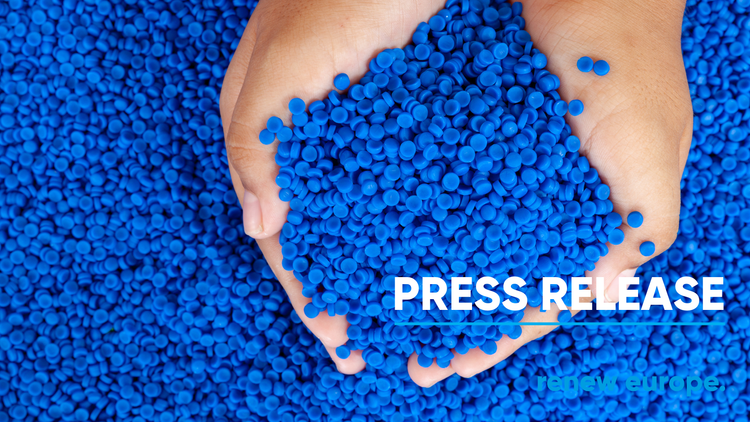
Wall-to-wall synthetic carpet, the keyboard at the office or some plastic garden furniture. You name it and plastic pellets are the building blocks of almost every plastic product. They come in all shapes, are feather light and escape very easily from the production chain directly into the landscape or the seas, until they end up in every species or simply persist in nature.
Between 52 and 184 tons of plastic pellets are lost in this way every year. That is an estimate and because it is also estimated that plastic production could triple by 2060, it can be assumed that the number of those small plastic building blocks that end up in the environment as a result of mishandling in the production chain will also increase proportionately.
As it is one of Renew Europe’s priorities to establish circular business models while working towards the ambition to reduce the release of microplastics into the environment by 30% by 2030, our group supports all preventive measures mentioned in this report to plug the leaks where spills and losses occur in plastic manufacturing and plastic transport, storage and recycling operations. Thanks to the efforts of our shadow rapporteur Catherine Chabaud, Renew Europe succeeded in including maritime transports too. This way, all operators involved in the transport of plastic pellets will have to comply with the regulation. With a risk assessment plan and certification requirements for facilities handling plastic pellets, clear labelling of storage and shipping containers, corporate training programs on pellet loss prevention, monitoring, reporting, and cleaning technologies, we are taking important steps to rid our environment of plastic pellet losses.
Catherine Chabaud (Mouvement Démocrate, France ) and Renew Europe shadow rapporteur says:
“I welcome the Parliament's adoption of this ambitious Regulation, which marks an essential step in the fight against microplastic pollution on a European scale, by tackling the issue of losses of plastic pellets (the raw material for plastics derived from petrochemicals). The text covers the entire value chain, and includes all types of transport, in particular maritime transport, which the Commission had initially ruled out in order to prevent any risk of spillage as far as possible. At the initiative of Renew Europe, the adopted regulation also proposes to tackle existing pollution, by introducing the possibility for Member States to use part of the penalties to support depollution projects. I hope the Council, and the next mandate, will support this ambitious approach!"